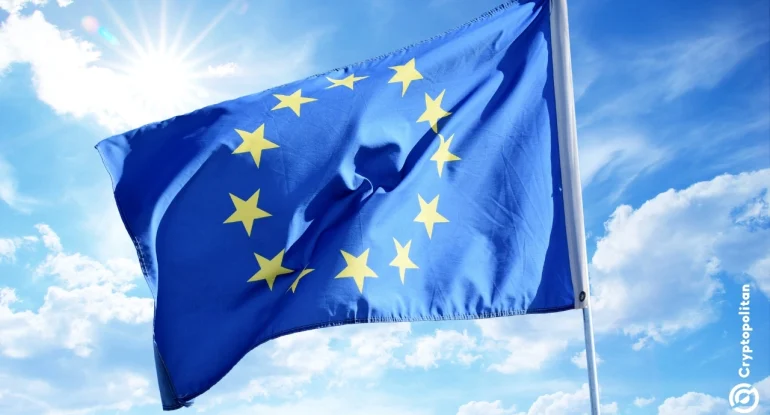Zero-Tariffs: EU Offers US Zero-for-Zero

European Commission President, Ursula von der Leyen, recently announced that the EU has put forward a “zero-for-zero” tax plan to the US, a move designed to prevent a potentially damaging trade war. This decision comes as the EU gears up for its initial set of targeted countermeasures.
In a statement you can see here, Ursula von der Leyen explained, “We’ve proposed ‘zero-for-zero’ tariffs on industrial goods, mirroring successful agreements we have with numerous other trading partners. Europe is always ready to make a good deal, and this proposition is still firmly on the table.”
This development follows the US imposition of tariffs on steel, aluminum, and cars from the 27 EU nations. These imports are now facing tariffs of 25%. Furthermore, almost all other goods will be hit with 20% reciprocal tariffs starting this Wednesday. In total, EU-made products worth over 380 billion euros are set to be affected.
BREAKING: European Commission president Ursula von der Leyen says the EU stands ready to negotiate a zero for zero tariff deal with the United States. pic.twitter.com/q1haL7VVWB
— Charlie Kirk (@charliekirk11) April 7, 2025
Trade ministers from across the EU met in Luxembourg today to discuss the bloc’s response, as well as their broader relationship with China. A prevailing sentiment among ministers was the urgent need to engage in dialogue to avert a full-blown trade war.
The looming trade tensions sparked by Trump’s policies are causing jitters among investors, with global financial markets already seeing trillions wiped off valuations in dollars and euros. European stocks, in particular, experienced their steepest single-day drop since the onset of the COVID-19 pandemic. It’s speculated that this market volatility may be a key driver behind the EU’s proactive “zero-for-zero” proposal, suggesting Trump’s tariff strategy might be having its intended effect!
Retaliatory tariffs from the EU, however, remain a distinct possibility.
Currently, the EU imposes a relatively low average tariff of just 1.6% on non-agricultural US goods, but there’s a 10% tariff on American cars imported from outside the US. Interestingly, the US remains the only G7 nation still subject to this car tariff, a consequence of the stalled TTIP trade agreement.
Negotiations with Washington have proven to be challenging so far. EU Trade Commissioner Maros Sefcovic described his recent two-hour meeting with US counterparts as “frank,” conveying in no uncertain terms that the US tariffs are both damaging and unjust.
This week, EU members are expected to finalize the first wave of countermeasures, targeting up to $28 billion worth of US imports, ranging from everyday items like dental floss to luxury goods like diamonds. These initial measures are specifically aimed at Trump’s steel and aluminum tariffs, and are separate from any response to the wider set of reciprocal levies on the horizon.
Yet, even these initial steps are fraught with tension. Trump has reportedly threatened to slap a massive 200% tariff on EU alcoholic beverages if the EU proceeds with its plan to impose a 50% duty on US bourbon. This threat is causing concern, especially for France and Italy, major exporters of wines and spirits.
In response to the US tariffs on cars and the broader reciprocal levies, the 27-nation EU bloc is likely to formulate a more substantial package of countermeasures by the end of April.
However, in a potential trade war scenario, the EU may find itself with fewer targets for tariffs compared to Washington. In 2024, US goods imported into the EU totaled 334 billion euros ($366.2 billion), while EU exports to the US reached a larger 532 billion euros. This trade imbalance arguably gives the US more leverage in dictating terms.
Dutch Trade Minister Reinette Klever offered a measured perspective, stating, “We need to stay composed and react in a way that cools things down. The current stock market reactions are a clear sign of what could happen if we immediately escalate tensions. However, we also need to be prepared to implement countermeasures if necessary, to bring the Americans back to the negotiating table.”
A key concern for the EU is the potential for Asian countries to redirect their exports towards Europe.
The European Commission is particularly worried about the broader implications of Trump’s trade policies on global trade flows, especially in Asia. They also have immediate concerns about the impact on EU-US trade, which could see a massive multi-billion dollar downturn.
Several Asian economies are facing even steeper tariff hits than the EU. For instance, Malaysia is facing a 24% impact, India 26%, Indonesia 32%, Thailand 36%, Vietnam 46%, Laos 48%, and Cambodia a staggering 49%.
China, in particular, has been hit hard with a “reciprocal” tax hike of 34% on top of their existing 20% rate, bringing the total to a hefty 54%. Notably, there have been no significant negotiations between these two major global economies to address these trade imbalances.
The core problem is escalating prices. Brussels is concerned that Asian economies heavily reliant on exports, now facing restricted access to the US market, might divert their goods towards Europe instead.
China is a particular focus of concern, already under scrutiny for flooding Western markets with cheap, heavily subsidized goods. Von der Leyen highlighted this issue in her Monday address, announcing the creation of a new task force specifically designed to monitor shifts in global trade patterns.
She elaborated, “We also need to protect against indirect consequences arising from trade diversion. To that end, we are establishing an ‘Import Surveillance Task Force […] We will be analyzing historical import data to identify any sudden surges in specific products or sectors that demand our attention and action.”
Cryptopolitan Academy: Tired of market swings? Learn how DeFi can help you build steady passive income. Register Now











